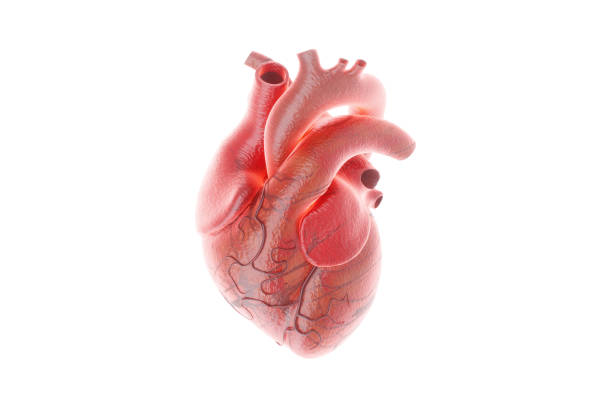
Heart disease is a leading health concern worldwide, claiming approximately 697,000 American lives annually, accounting for about 1 in every 5 deaths. With heart disease often linked to clogged arteries, it’s essential to prioritize foods that help prevent this dangerous buildup. Here, we’ll explore ten foods that are known for their artery-cleansing properties, and how they can help say goodbye of heart disease.
Avocados
Avocados are loaded with heart-healthy monounsaturated fats, which help reduce bad cholesterol (LDL) while increasing good cholesterol (HDL). They also contain potassium, a mineral that helps regulate blood pressure. Regular consumption of avocados can contribute to healthier arteries by reducing the buildup of cholesterol plaques, a key contributor to artery clogging.
Oats
Rich in soluble fiber, oats are excellent for heart health. The fiber in oats binds to cholesterol in the digestive tract, helping to lower overall cholesterol levels. By consuming oats regularly, you can significantly reduce the risk of plaque buildup in your arteries, keeping them clear and healthy.
Olive Oil
Olive oil, especially extra-virgin olive oil, is high in monounsaturated fats and antioxidants. These help to reduce inflammation, lower blood pressure, and prevent LDL cholesterol from oxidizing and sticking to artery walls. Incorporating olive oil into your diet can make a noticeable difference in your heart health.
Nuts (Almonds, Walnuts, and Pistachios)
Nuts are packed with fiber, healthy fats, and antioxidants that work together to improve cholesterol levels and reduce inflammation. Walnuts, in particular, are high in omega-3 fatty acids, which help prevent blood clotting and improve artery function. Almonds and pistachios are also beneficial due to their high fiber content and heart-healthy fats.
Berries
Blueberries, strawberries, raspberries, and blackberries are all rich in antioxidants, which help to reduce inflammation and oxidative stress on artery walls. Berries contain polyphenols, which improve endothelial function and reduce blood pressure. A diet rich in berries can significantly lower the risk of clogged arteries and heart disease.
Fatty Fish (Salmon, Mackerel, and Sardines)
Fatty fish are high in omega-3 fatty acids, which help reduce triglycerides, lower blood pressure, and prevent arterial plaque buildup. Eating fatty fish regularly can improve blood flow, decrease inflammation, and protect your heart. The American Heart Association recommends eating fish at least twice a week to maintain heart health.
Dark Leafy Greens (Spinach, Kale, and Collard Greens)
Dark leafy greens are rich in nitrates, which have been shown to reduce blood pressure and improve arterial function. These greens are also high in fiber, which helps to lower cholesterol levels. The vitamins and minerals in leafy greens, such as potassium and magnesium, also contribute to overall heart health by reducing plaque buildup.
Garlic
Garlic contains a sulfur compound called allicin, which has been shown to lower blood pressure and reduce cholesterol levels. Regular consumption of garlic can prevent the hardening of arteries, known as arteriosclerosis, and reduce the risk of plaque buildup. Incorporating garlic into your meals is an easy way to keep your arteries clear and healthy.
Green Tea
Green tea is high in catechins, a type of antioxidant that prevents the absorption of cholesterol in the intestines and improves artery function. Drinking green tea regularly has been associated with reduced LDL cholesterol levels and decreased blood pressure, making it a powerful addition to a heart-healthy diet.
Turmeric
Turmeric contains curcumin, a potent anti-inflammatory compound that helps prevent artery clogging. Curcumin reduces inflammation, lowers cholesterol, and prevents blood clots from forming. Adding turmeric to your dishes or taking it as a supplement can help improve your heart health over time.
Causes of heart disease
Heart disease often develops due to a combination of genetic and lifestyle factors. The primary cause is the buildup of plaque within the arteries, a condition known as atherosclerosis, which restricts blood flow to the heart and other organs. This plaque buildup is typically caused by high cholesterol, high blood pressure, smoking, diabetes, and an unhealthy diet high in trans fats and processed sugars. Sedentary lifestyles, excessive alcohol consumption, and chronic stress can also increase the risk of heart disease. In some cases, heart disease is hereditary, so those with a family history should be particularly vigilant about their heart health.
Signs and symptoms of heart disease
Heart disease can present with various symptoms, often depending on the specific condition or level of severity. Common signs include chest pain or discomfort (angina), shortness of breath, fatigue, and irregular heartbeat. Some individuals may experience pain in the neck, jaw, back, or arms, which can indicate a heart attack. In more advanced cases, symptoms like lightheadedness, nausea, and cold sweats can occur. It’s essential to recognize these signs early, as prompt medical attention can greatly improve outcomes and potentially save lives. Regular check-ups and monitoring are crucial, especially for those with risk factors or a family history of heart disease.
Read more: Everything You Need To Know About Stomach Ulcers
In Conclusion
Preventing clogged arteries and heart disease is crucial for maintaining long-term health. Incorporating these ten heart-healthy foods into your diet can help reduce the risk of artery blockage, improve blood circulation, and promote overall cardiovascular health. Alongside a balanced diet, regular exercise, and stress management, these foods can make a significant difference in your heart health and overall well-being.
By making conscious dietary choices and staying informed about heart health, you can take proactive steps to protect your heart and reduce the risk of becoming one of the 697,000 annual fatalities linked to heart disease in America. Remember, every meal is an opportunity to make a heart-healthy choice!





